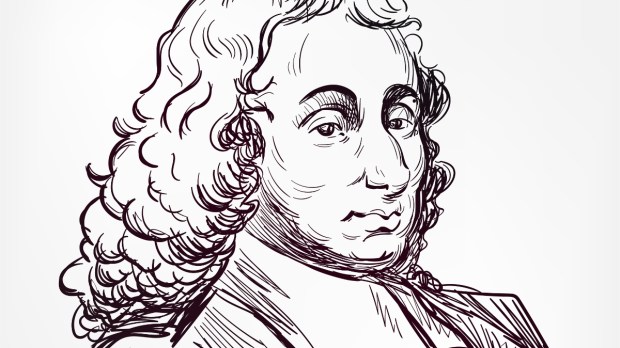Pope Francis has released an apostolic letter on Blaise Pascal, called Sublimitas et miseria hominis – “The Grandeur and Misery of Man.”
Published on June 19, 2023, it marks the fourth centenary of the birth of the Frenchman (June 19, 1623 – August 19, 1662). The Jesuit Pontiff pays a touching and personal tribute to the philosopher, “companion on the road” in “our search for true happiness.”
The 12-page text is the second apostolic letter dedicated by Pope Francis to a lay writer. In 2021, he wrote Candor Lucis Æterne on Dante Alighieri.
Like the Italian poet, Pascal is one of the Pontiff’s recurring cultural and spiritual references; Francis is a former literature professor and avid reader.
In an interview granted in 2017 to Eugenio Scalfari, founder of the Italian newspaper La Repubblica, Pope Francis even said that he considered “personally” that Pascal “should be beatified.”
Here are five lines from the document:
If Pascal proposed to speak of man and God, it was because he had arrived at the certainty that “not only do we know God solely through Jesus Christ, but we know ourselves solely through Jesus Christ.
One day his father found Blaise studying geometry and suddenly realized that, without knowing that the same theorems could be found in books under other names, Blaise, at age twelve, entirely on his own, by drawing figures on the ground, had demonstrated the first 32 propositions of Euclid.
After applying his extraordinary intelligence to the study of the human condition, the sacred Scriptures and the Church’s tradition, Pascal now presents himself with childlike simplicity as a humble witness of the Gospel. As a Christian, he wishes to speak of Jesus Christ to those who have hastily concluded that there is no solid reason to believe in the truths of Christianity.
On 23 November 1654, Pascal had a powerful experience that even now is referred to as his “night of fire.” … it seems to have been an encounter which he himself acknowledged as analogous to the encounter, fundamental for the whole history of revelation and salvation, that Moses experienced in the presence of the burning bush … immediately after the evocation of fire, [he] repeated the appellation that the Lord gave himself in the presence of Moses – “the God of Abraham, the God of Isaac, the God of Jacob” ( Ex 3:6.15) – and then added: “not of the philosophers and the sages. Certainty. Certainty. Feeling. Joy. Peace. God of Jesus Christ.”
Gravely ill and at the point of dying, he asked to receive Holy Communion, but that was not immediately possible. So he asked his sister, “since I cannot communicate in the head [Jesus Christ], I would like to communicate in the members.” He “greatly desired to die in the company of the poor.” It was said of Pascal, shortly after he took his last breath on 19 August 1662, that “he died with the simplicity of a child.” After receiving the sacraments, his last words were: “May God never abandon me.”


